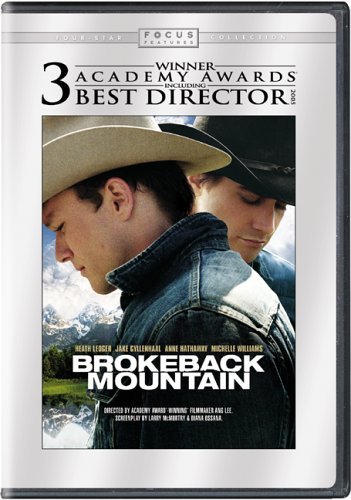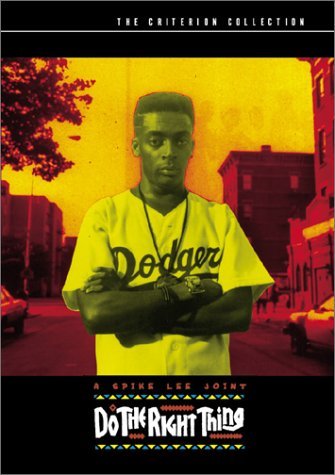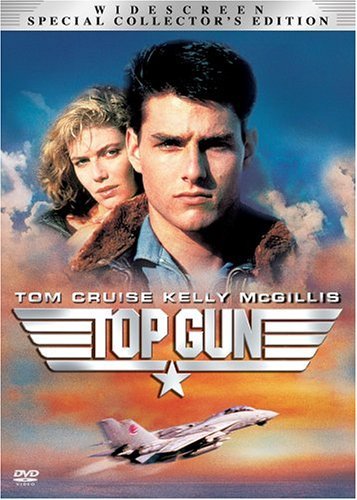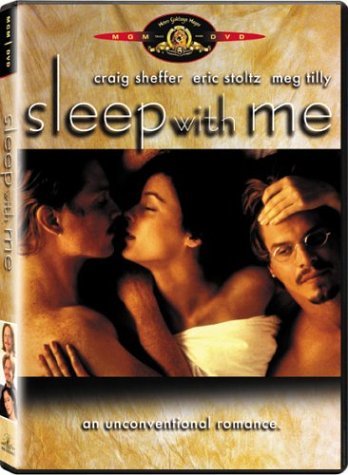Brokeback Mountain
Bevin Chu
Tuesday, May 02, 2006
Brokeback Mountain (2005)
Directed by Ang Lee
Short story by Annie Proulx
Screenplay by Larry McMurtry, Diana Ossana
Starring Heath Ledger, Jake Gyllenhaal, Anne Hathaway, Michelle Williams
Well I finally got around to seeing Brokeback Mountain. It was too controversial to miss. One simply has to see it to know what everyone else is talking about.
Because the film was directed by Taiwan born Chinese American director Ang Lee, “president” Chen Shui-bian and the Taiwan independence nomenklatura have been milking Lee’s Best Direction Oscar win for everything it’s worth. No occasion, however inappropriate, has been spared Chen Shui-bian’s far-fetched, lame Brokeback Mountain analogies.
According to a February 25, 2006 China Post article entitled “Chen’s Comments on Taipei-Washington Ties Raise Eyebrows”:
President Chen Shui-bian’s likening Taipei-Washington ties to the homosexual love depicted in the movie Brokeback Mountain has raised some eyebrows. Critics have questioned whether Chen has seen the awards-winning movie of by Taiwan director Ang Lee, or really understands what the film is about. Officials with the Presidential Office’s public affairs department yesterday said they did not know whether Chen had seen Brokeback Mountain.
Even Richard Spencer, the Daily Telegraph’s China Correspondent, and a self-professed admirer of Chen, thought Chen was reaching. In a March 7, 2006 article entitled “Taiwan’s president takes gay rights too far,” Spencer wrote:
I suspect even the most ardent supporters might think President Chen Shui-bian went a bit far the other day. In a speech to the American Chamber of Commerce in Taipei, he compared Brokeback Mountain to the island’s relationship with the United States. The analogy was long, and complex, and, to be frank, rather baffling.
“The most profound lesson we must take away transcends the love affairs in the movie,” he said. “It motivates us to understand all of us are bound to make difficult decisions in life, yet we must strive to dispel prejudice… and seek ways to reconcile and cooperate with one another. “Only by doing so can we together reach the frontier of a ‘great new world’.” And he did not give up there. “Lee once said: ‘There is a Brokeback Mountain in each and every one of us.’ I deeply believe that the common pursuit of a ‘great new world’ by both Taiwan and the United States will guide us to a place where universal values – democracy, freedom, peace and prosperity – can be fully realized in the world we share.”
Mr Chen has, I feel, failed to surmount the comprehensibility test on that one, and though his attempt to make the wild open spaces of the mid-west relevant to a small, slightly overpopulated and gadget-obsessed semi-tropical island is brave, it was probably doomed from the outset. The main reaction appears to have been some rather obvious crude jokes.
Spencer just doesn’t get it. The Taiwan independence nomenklatura doesn’t give a damn about gay rights. In fact Deep Green racists have denounced gays because, in their words, “ta men bu sheng dan” (they don’t lay eggs), i.e., they don’t reproduce and make more “Taiwanese.” The Taiwan independence nomenklatura only cares about international exposure for their “Taiwanese, not Chinese” identity politics. Chen merely wants to spin the film’s apolitical director as a “Taiwanese director.”
According to an April 29, 2006 Taipei Times article entitled “Tainan celebrates Ang Lee Day”:
Tainan City, the hometown of Oscar winner Ang Lee, declared April 28 “Ang Lee Day” as the director returned to the southern city to accept the honor. He was the first Asian to pick up Hollywood’s prestigious best director award. Flanked by his Oscar statue, Lee handed an autographed poster of his celebrated gay romance Brokeback Mountain to Tainan Mayor Hsu Tian-tsai during a ceremony at the city government building. Both men donned cowboy hats in honor of the occasion. To celebrate Lee’s visit, Chinzi Cinema yesterday held a free public screening of Brokeback Mountain. The city government also aired another Oscar-winning film by Lee, Crouching Tiger, Hidden Dragon. Lee reportedly also accepted an invitation from … Chen Shui-bian to give a speech in Taipei next Thursday about his journey from childhood in Tainan to an internationally acclaimed director. Lee recently was voted as the top figure in the arts and entertainment category of Time Magazine’s list of the world’s 100 most influential icons … Some local media reports speculated however that the voting results may have been distorted by overzealous Taiwanese web surfers who used software to inflate Lee’s number.
Ang Lee, right, presents a poster and a DVD of Brokeback Mountain to Tainan Mayor Hsu Tian-tsai at Tainan City Hall
Never mind that Ang Lee is a so-called “mainlander” whom Taiwan independence demagogues would demonize as a “mainlander pig” in any other context. The fact that he won an Oscar and can be promoted as a “Taiwanese director who has brought honor to his native Taiwan” means Lee’s Original Sin of being born a “mainlander” is forgiven.
The Taiwan independence nomenklatura’s attitude toward Ang Lee reminds one of Pino’s attitude toward African Americans in Spike Lee’s incendiary 1989 film, Do the Right Thing. In the film, Mookie, an African American pizza delivery worker played by Spike Lee, confronts Pino, the racist Italian American son of the pizzeria owner about his self-contradictory attitudes toward African Americans.
Do the Right Thing
Mookie: Pino, who’s your favorite basketball player?
Pino: Magic Johnson.
Mookie: Who’s your favorite movie star?
Pino: Eddie Murphy.
Mookie: Who’s your favorite rock star? Prince, you’re a Prince fan.
Pino: Bruce!
Mookie: Prince!
Pino: Bruce!
Mookie: Pino, all you ever talk about is ‘nigger this” and “nigger that,” and all your favorite people are so called “niggers.”
Pino: It’s different. Magic, Eddie, Prince, are not niggers. I mean they’re not black. I mean. Let me explain myself. They’re not really black, I mean, they’re black but they’re not really black, they’re more than black. It’s different.
Mookie: It’s different?
Pino: Yeah, to me it’s different.
But getting back to Brokeback Mountain, what was my reaction to the film? I’m sorry to say that after all the awards and all the hooplah, I was thoroughly disappointed. My reaction as the end credits rolled was, “Was that it?”
Lee ranks among my favorite living directors. But Oscar or no Oscar, Brokeback Mountain was not among his better works. Lee’s 1995 remake of Sense and Sensibility, which never fails to bring tears to my eyes no matter how many times I see it, was far more deserving of an Oscar than Brokeback Mountain.
Out of curiosity I visited the Internet Movie Database to see the number of external reviews posted. Brokeback Mountain must have set some sort of record. 246 reviews.
I visited Rotten Tomatoes to see what their “Tomato Meter” read. A very respectable 86%.
Sifting through the reviews at Rotten Tomatoes, I realized I really didn’t need to write my own review. Other critics had pretty much written mine for me. Here are the ones that reflect my own reaction to the film.
“Doesn’t match its hype.”
— John Wirt, ADVOCATE (BATON ROUGE, LA)
“I almost feel guilty that I can’t rave about it.”
— Betty Jo Tucker, REELTALK MOVIE REVIEWS
“The filmmaking itself, self-consciously restrained and desiccated, is inert and inexpressive.”
— Stephanie Zacharek, SALON.COM
“Only a rough draft of a great movie.”
— Kyle Smith, NEW YORK POST
“For all its brave beginnings and real achievements — its assault on western mythology, its discovery of a subversive sexual honesty in an unexpected locale — Brokeback Mountain finally fails to fully engage our emotions.”
— Richard Schickel, TIME MAGAZINE
“I was never moved or even overly excited by what I finally witnessed on the screen.”
— Andrew Sarris, NEW YORK OBSERVER
If I’m not mistaken, the ADVOCATE is a gay oriented newspaper. That means that the disappointment wasn’t felt merely by straight reviewers such as myself, but by gays as well.
Richard Schickel’s comments in TIME MAGAZINE were especially pertinent. I had been anticipating just what Schickel mentioned, an “assault on western mythology [and] a subversive sexual honesty in an unexpected locale.” What I saw in the theater was a failed assault. What I saw was not “The Longest Day,” but “A Bridge Too Far.”
In this connection, I can’t help thinking of a dramatically different movie that, in contrast to Brokeback Mountain, waged a surprisingly successful assault on American mythology and demonstrated a subversive sexual honesty in an unexpected locale.
That movie, believe it or not, was Tony Scott’s ultra slick 1986 action flick Top Gun, written by Jim Cash and Jack Epps, Jr., produced by Simpson/Bruckheimer, starring Tom Cruise and Kelly McGillis.
Top Gun
In terms of sheer subversiveness, Brokeback Mountain pales next to Top Gun. Screenwriters Cash and Epps really put one over on the Pentagon, which considered Top Gun the perfect US Navy recruiting film and practically subsidized its production. The psychologically clueless brass hats at the Department of Defense had no idea the film was mocking the homosexual panic behind the macho pretensions of the military, and doing so at their expense.
Talented Hollywood hyphenate Quentin Tarantino played a loquacious partygoer in the 1994 romantic comedy Sleep with Me. In it Tarantino’s character, Sid, holds forth on Top Gun’s gay subtext in a hilarious monologue written by screenwriter Roger Avary.
Sleep with Me
Sid: You want subversion on a massive level. You know what one of the greatest fucking scripts ever written in the history of Hollywood is? Top Gun.
Duane: Oh, come on.
Sid: Top Gun is fucking great. What is Top Gun? You think it’s a story about a bunch of fighter pilots.
Duane: It’s about a bunch of guys waving their dicks around.
Sid: It is a story about a man’s struggle with his own homosexuality. It is! That is what Top Gun is about, man. You’ve got Maverick, all right? He’s on the edge, man. He’s right on the fucking line, all right? And you’ve got Iceman, and all his crew. They’re gay, they represent the gay man, all right? And they’re saying, go, go the gay way, go the gay way. He could go both ways.
Duane: What about Kelly McGillis?
Sid: Kelly McGillis, she’s heterosexuality. She’s saying: no, no, no, no, no, no, go the normal way, play by the rules, go the normal way. They’re saying no, go the gay way, be the gay way, go for the gay way, all right? That is what’s going on throughout that whole movie… He goes to her house, all right? It looks like they’re going to have sex, you know, they’re just kind of sitting back, he’s takin’ a shower and everything. They don’t have sex. He gets on the motorcycle, drives away. She’s like, “What the fuck, what the fuck is going on here?” Next scene, next scene you see her, she’s in the elevator, she is dressed like a guy. She’s got the cap on, she’s got the aviator glasses, she’s wearing the same jacket that the Iceman wears. She is, okay, this is how I gotta get this guy, this guy’s going towards the gay way, I gotta bring him back, I gotta bring him back from the gay way, so I’ll do that through subterfuge, I’m gonna dress like a man. All right? That is how she approaches it. Okay, now let me just ask you – I’m gonna digress for two seconds here. I met this girl Amy here, she’s like floating around here and everything. Now, she just got divorced, right? All right, but the real ending of the movie is when they fight the MIGs at the end, all right? Because he has passed over into the gay way. They are this gay fighting fucking force, all right? And they’re beating the Russians, the gays are beating the Russians. And it’s over, and they fucking land, and Iceman’s been trying to get Maverick the entire time, and finally, he’s got him, all right? And what is the last fucking line that they have together? They’re all hugging and kissing and happy with each other, and Ice comes up to Maverick, and he says, “Man, you can ride my tail, anytime!” And what does Maverick say? “You can ride mine!” Swordfight! Swordfight! Fuckin’ A, man!
According to the film oriented website godamongdirectors.com:
[Val Kilmer] got all buffed out for the role of Iceman, Tom Cruise’s adversary, and while he didn’t like the script (“I turned it down at first, but Paramount had an option they exercised, so I had to do it”), Top Gun remains a key film of the ’80s — the most representative of not only what was wrong with movies but what was wrong with this country’s values. It’s also the most unintentionally gay movie ever made by a big studio, so homoerotic it’s like some kind of camp joke. It’s impossible to watch it without thinking of Quentin Tarantino’s hilarious monologue about the movie’s gay subtext in the “we’re hip screenwriters in Hollywood” flick Sleep With Me, which Kilmer hasn’t seen. All he’ll say about the above, while smiling, is “Oh yeah?”
C’mon, Val. When were we all fucking born? Yesterday? The day before that? We know you sit around at 4:00 am with your VCR and a copy of Sleep With Me, holding your head in your hands, moaning, “What have I done? Dear God, what have I done?” C’mon, Batguy, ‘fess up.
Like Sid said, “subversion on a massive level … one of the greatest fucking scripts ever written in the history of Hollywood.”




